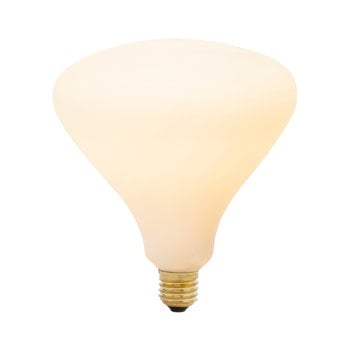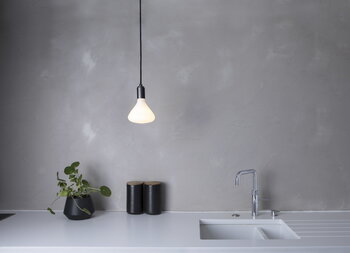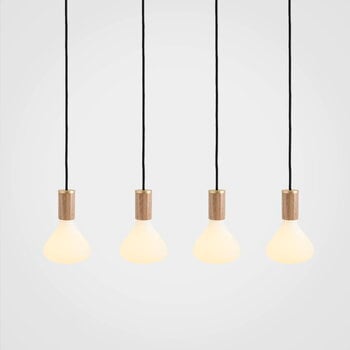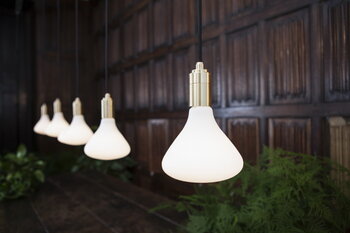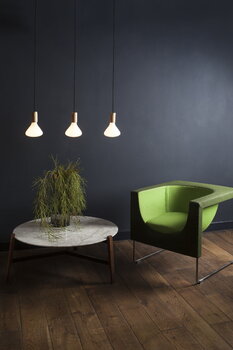Both sophisticated and playful, the geometrically shaped Noma 6W LED bulb is a member of the Porcelain collection by the English lamp manufacturer Tala. Diffused through a porcelain-like white glass surface, the mouth-blown and sandblasted Porcelain lamps provide a smooth and soft light that complements any interior and also balances the character of bold colours and backgrounds.
The environmentally-friendly Tala lamps are built to last, and the lamps come with a 3-year warranty.
